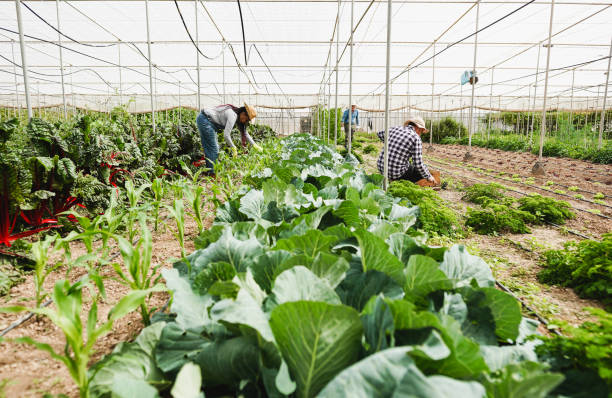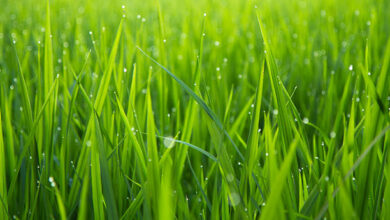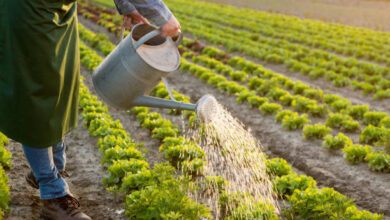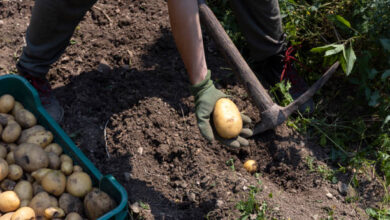
What is O Farming?
The term “O Farming” is often associated with organic farming, a method of agriculture that emphasizes sustainability, environmental health, and the avoidance of synthetic inputs. In this blog post, we will delve into the principles and practices of organic farming, its benefits, and its impact on both consumers and the environment.
What is O Farming?
Definition and Principles of Organic Farming
Organic farming, commonly referred to as “O Farming,” is an agricultural system that relies on natural processes and inputs to cultivate crops and raise livestock. This method emphasizes biodiversity, soil health, and ecological balance, avoiding synthetic pesticides, fertilizers, and genetically modified organisms (GMOs). The primary principles of organic farming include maintaining and enhancing soil fertility, promoting ecological balance, and conserving biodiversity.
Historical Background of Organic Farming
Organic farming has roots in traditional agricultural practices that date back thousands of years. The modern organic farming movement began in the early 20th century as a response to the industrialization of agriculture. Pioneers such as Sir Albert Howard, J.I. Rodale, and Lady Eve Balfour advocated for a return to sustainable farming practices that prioritize soil health and ecological balance.
Key Practices in Organic Farming
Crop Rotation and Diversity
One of the fundamental practices in organic farming is crop rotation, which involves growing different types of crops in succession on the same land. This practice helps prevent soil depletion, reduces pest and disease cycles, and improves soil fertility. Crop diversity also enhances resilience against environmental stresses and promotes a balanced ecosystem.
Soil Management and Fertility
Organic farming prioritizes soil health through various practices, such as composting, cover cropping, and green manuring. These methods add organic matter to the soil, improving its structure, nutrient content, and water-holding capacity. Healthy soil is the foundation of organic farming, as it supports robust plant growth and enhances the farm’s overall productivity.
Pest and Weed Control
Organic farmers employ natural pest and weed control methods, avoiding synthetic chemicals. Integrated Pest Management (IPM) techniques, such as introducing beneficial insects, using natural predators, and planting pest-resistant crop varieties, help manage pest populations. For weed control, organic farmers use mechanical weeding, mulching, and crop rotation to minimize weed growth and competition.
Benefits of Organic Farming
Environmental Benefits
Organic farming offers numerous environmental benefits, including reduced chemical runoff, improved soil health, and increased biodiversity. By avoiding synthetic inputs, organic farming minimizes water pollution and soil degradation. Additionally, organic practices support diverse ecosystems, promoting the presence of beneficial insects, birds, and other wildlife.
Health Benefits
Organic farming produces food that is free from synthetic pesticides and fertilizers, offering consumers healthier and safer options. Studies have shown that organic produce often contains higher levels of essential nutrients, antioxidants, and vitamins. By consuming organic foods, individuals can reduce their exposure to potentially harmful chemicals and support their overall well-being.
Economic Benefits
Organic farming can provide economic benefits to farmers by opening up access to premium markets and higher price points for organic products. Additionally, organic farming practices can reduce input costs over time, as farmers rely on natural resources and sustainable methods. By investing in organic farming, farmers can build resilient and profitable agricultural enterprises.
Organic Certification and Standards
Certification Process
To ensure the integrity of organic products, farmers must undergo a rigorous certification process. This process includes detailed documentation, inspections, and adherence to specific organic standards. Certification ensures that products labelled as organic meet established criteria and provides consumers with confidence in the authenticity of their purchases.
Major Organic Certification Bodies
Several organizations provide organic certification, including the USDA National Organic Program (NOP) in the United States, the European Union’s Organic Certification, and the International Federation of Organic Agriculture Movements (IFOAM). These bodies establish and enforce standards to maintain the credibility and consistency of organic products worldwide.
Standards and Regulations
Organic standards and regulations vary by country but generally include requirements for soil management, crop production, livestock care, and processing. These standards prohibit the use of synthetic pesticides, fertilizers, GMOs, and antibiotics, ensuring that organic products are produced in an environmentally and socially responsible manner.
Challenges in Organic Farming
Higher Costs and Lower Yields
One of the primary challenges in organic farming is the higher cost of production and often lower yields compared to conventional farming. Organic farmers invest more in labour-intensive practices, such as manual weeding and composting, which can increase costs. Additionally, the transition to organic farming can result in reduced yields during the initial years as the soil adjusts to new practices.
Market Competition
Organic farmers face competition from both conventional farmers and other organic producers. The growing popularity of organic products has led to increased competition, requiring farmers to differentiate their products and maintain high standards of quality. Market fluctuations and the availability of cheaper conventional alternatives can also pose challenges for organic farmers.
Knowledge and Education
Successful organic farming requires a deep understanding of ecological processes, soil health, and sustainable practices. Farmers must continually educate themselves and adapt to new techniques and technologies. Access to resources, training, and support networks is essential for organic farmers to thrive and overcome the challenges they face.
You May Love To Read
What to Plant with Bee Balm?: All You Need To Know.
When to Plant Potatoes in Texas: The Ultimate Guide.
What Planting Zone is Missouri? Your Guide to Gardening Success
The Future of Organic Farming
Technological Innovations
The future of organic farming is likely to be shaped by technological innovations that enhance efficiency and sustainability. Advances in precision agriculture, organic pest control methods, and soil health monitoring can help organic farmers improve productivity and reduce labour costs. Embracing technology will enable organic farming to scale and meet the growing demand for sustainable food.
Policy and Support
Government policies and support programs play a crucial role in promoting organic farming. Subsidies, grants, and research funding can help farmers transition to organic practices and sustain their operations. Policymakers must continue to prioritize organic farming as a key component of sustainable agriculture and provide the necessary support to ensure its success.
Consumer Trends
As consumers become more health-conscious and environmentally aware, the demand for organic products is expected to rise. Educating consumers about the benefits of organic farming and promoting the value of sustainably produced food will drive continued growth in the organic market. Consumer support is vital for the expansion and success of organic farming.
Conclusion
Organic farming, or “O Farming,” represents a holistic approach to agriculture that prioritizes environmental health, sustainability, and consumer well-being. By understanding its principles, practices, and benefits, we can appreciate the positive impact of organic farming on our world. Have you ever tried organic farming or purchased organic products? Share your thoughts and experiences in the comments below!
If you found this post helpful, share it with your friends and family. Don’t forget to subscribe to our blog for more insights into sustainable farming and eco-friendly living!




